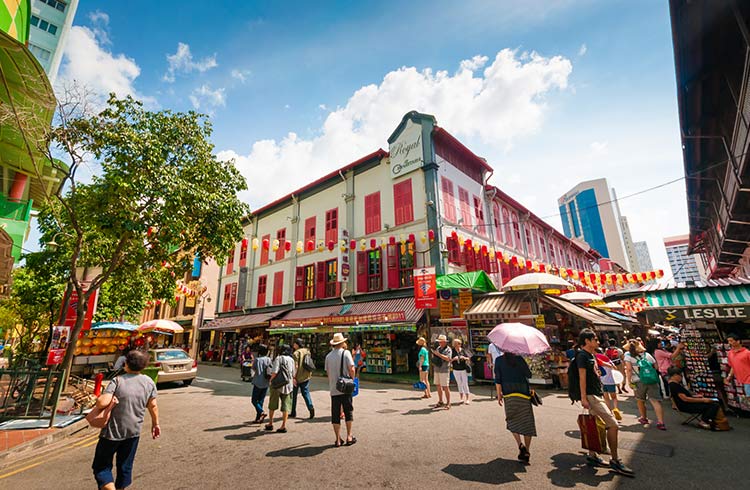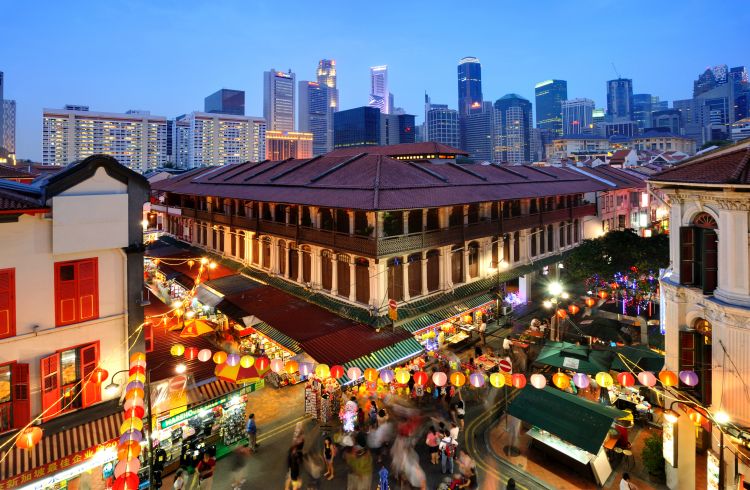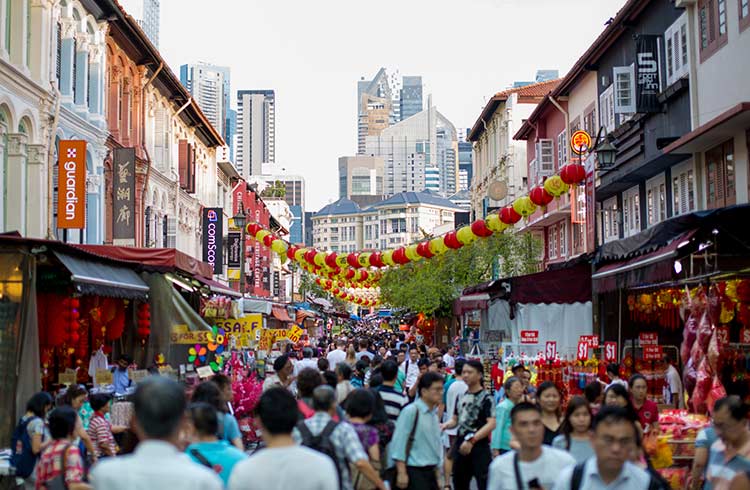Travel Scams in Singapore: How to Avoid Being Ripped Off
Despite being a very safe destination, there are a few devious scammers operating in Singapore. Find out how to spot a scammer before they get you.
 Photo © Getty Images/primeimages
Photo © Getty Images/primeimages
Singapore is a popular destination with great shopping, markets selling all types of items (some real, some fake), huge shopping malls and hawker centers selling delicious food. But, shopping travelers should be aware that foreigners are a blessing for local scammers and hustlers, who take advantage of unsuspecting visitors.
With a little bit of knowledge prior to your trip, you can find out what to look out for and how to avoid common scams, which will steal your hard-earned dollars if you're not careful.
These are some of the most common travel scams in Singapore.
Social behavior scams
There has been a recent surge in reported scams involving Singapore's "Outrage of modesty" law. Tourists and ex-pats have been accused of touching a woman inappropriately in a nightclub and asked for a hefty settlement to avoid police charges.
This is how the scam works: a traveler cuts loose at a nightclub, has a few drinks too many, and is approached by a local woman. She lays on the charm, and the man, inevitably, falls for it. His hands get a little too bold, and she accuses him of molestation, or "Outrage of modesty".
Two heavies come to her defense, threatening to call the police unless the traveler gives her hush money, which can be in the thousands of dollars. Usually, the victim pays up because he's drunk, confused, and doesn't want to get caught up in the law or receive the punishment: jail time or the cane.
Even if he contests it, the law might side with the accuser. There has been an increase in "Outrage of modesty" cases in Singapore, and while we can't extrapolate how many of those were real cases of molestation or scams that were settled privately, the best advice is to avoid having too much to drink, and to keep your hands to yourself.
Fake monks and nuns
This is a scam not limited to Singapore but commonly found in other destinations throughout Asia. You may be approached by a Buddhist monk or nun asking for donations. Buddhist monks and nuns do not beg for money, nor do they persistently pester people. Report it immediately to local police.
Find out why you should avoid donating to beggars no matter where you are in the world.
Overpriced food at hawker centers
Another scam to watch out for is retail prices. Certain hawker centers, mainly food courts, have been known to charge absurd prices for a meal. In one famous case, an American tourist was charged nearly US $369 (500 SGD) for a meal for six, including US $175 (239 SGD) for eight prawns.
However, justice was swift. This became a national scandal and the seller was shut down for three months. To avoid this unpleasant scenario, always check prices at hawker centers, especially the crowded ones like Lau Pa Sat and Newton.
Singapore is famous for its chili crab, however, some travelers have reported receiving less than the whole crab they ordered.
Other items dodgy restaurants may overcharge for, which are usually assumed complimentary, or charge an exorbitant price include wet wipes, paper napkins, a sliced mango, desserts you didn't order, peanuts, US $30 for Chinese broccoli, or charging for vegetables in fried rice.
To avoid being overcharged, ask the vendor if the price is inclusive of everything in the meal, and ask upfront for the costs of extra items.
Credit card swap
Credit card swaps can also happen at restaurants in Singapore. When you give your card to the waiter to pay the bill, pay attention when they return, as some travelers have reported being handed back the wrong card with the receipt wrapped around it.
The card looks similar to yours, so you might not think much of it, only to discover it's not yours when you go to use it later, finding it's an expired card.
To avoid this, never let your card out of sight.
Shopping scams
There have been some reports of the infamous "white van scam" in Singapore. This is where a man in a van claims to have expensive, high-quality audio equipment, such as headphones, and offers you an absurdly low price for it. The gear will have a name that sounds like a reputable brand but is in fact a cheap knockoff. Ignore any offers like this from anyone on the streets, especially if they are selling from their van.
Many travelers have sadly experienced the fake goods situation in Singapore. Some people thought they were buying a genuine iPad, only to discover that the iPad is not what they paid for – either the features were not included or totally fake.
Property rental scams
People wishing to rent property in Singapore should exercise caution. Real estate fraud has stung a visitor or two. Although there are several types of scams, the idea is the same: request money upfront from a foreigner who doesn't know the rights and safeguards of tenants.
For example, a real estate broker can offer a lower price if you pay a whole year's rent upfront. Others might take a deposit for a timeshare that doesn't exist.
To avoid being taken for a ride, prospective tenants must follow due diligence: make sure the agent is legit, confirm the name of the landlord with proof of ownership, and read through all the legal documents. And never pay in cash: issue a cheque or cashier's order to the name of the owner.
Have you been scammed in Singapore? Share your tips for other travelers below!
Related articles
Simple and flexible travel insurance
You can buy at home or while traveling, and claim online from anywhere in the world. With 150+ adventure activities covered and 24/7 emergency assistance.
Get a quote


No Comments